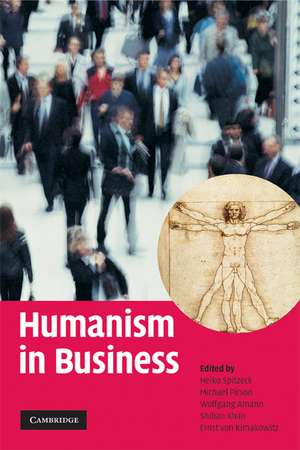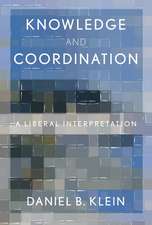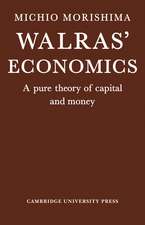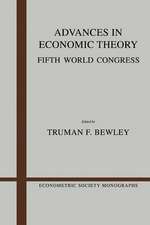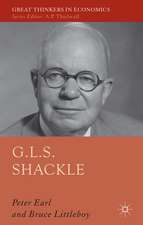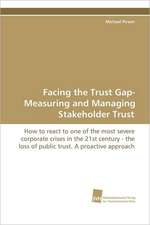Humanism in Business
Editat de Heiko Spitzeck, Michael Pirson, Wolfgang Amann, Shiban Khan, Ernst von Kimakowitzen Limba Engleză Paperback – 25 feb 2009
| Toate formatele și edițiile | Preț | Express |
|---|---|---|
| Paperback (1) | 337.98 lei 6-8 săpt. | |
| Cambridge University Press – 25 feb 2009 | 337.98 lei 6-8 săpt. | |
| Hardback (1) | 899.00 lei 6-8 săpt. | |
| Cambridge University Press – 25 feb 2009 | 899.00 lei 6-8 săpt. |
Preț: 337.98 lei
Nou
Puncte Express: 507
Preț estimativ în valută:
64.67€ • 69.16$ • 53.92£
64.67€ • 69.16$ • 53.92£
Carte tipărită la comandă
Livrare economică 17 aprilie-01 mai
Preluare comenzi: 021 569.72.76
Specificații
ISBN-13: 9780521727624
ISBN-10: 0521727626
Pagini: 270
Ilustrații: 4 tables
Dimensiuni: 152 x 229 x 23 mm
Greutate: 0.75 kg
Editura: Cambridge University Press
Colecția Cambridge University Press
Locul publicării:Cambridge, United Kingdom
ISBN-10: 0521727626
Pagini: 270
Ilustrații: 4 tables
Dimensiuni: 152 x 229 x 23 mm
Greutate: 0.75 kg
Editura: Cambridge University Press
Colecția Cambridge University Press
Locul publicării:Cambridge, United Kingdom
Cuprins
List of figures; List of tables; List of editors and contributors; HUMANET: HUmanistic MAnagement Research NETwork: paving the way towards a life-serving economy; Introduction Michael Pirson, Ernst von Kimakowitz, Heiko Spitzeck, Wolfgang Amann and Shiban Khan; Part I. Philosophic-Historical Grounding of Humanism: 1. Philosophical grounds of Humanism in economics Julian Nida-Rümelin; 2. The Humanist tradition Matt Cherry; 3. Humanism and culture: balancing particularity and universalism among the world's religions Greg Epstein; 4. A requisite journey: from business ethics to economic philosophy Claus Dierksmeier; 5. The global economy from a moral point of view Stephen B. Young; 6. The implications of Humanism for business studies Omar Aktouf and W. David Holford; 7. Current trends in Humanism and business Domènec Melé; Part II. Towards an Integration of Humanism and Business on a Systems Level: 8. Towards a civilized market economy: economic citizenship rights and responsibilities in service of a humane society Peter Ulrich; 9. Development as freedom - individual freedom as a social commitment Amartya Sen; 10. On corporate responsibility for human rights Klaus M. Leisinger; 11. The value shift: merging social and financial imperatives Lynn Sharp Paine; 12. The ugly side of capitalism: what the young generation needs to combat Ulrich Steger; Part III. Humanistic Management: 13. Democratizing the corporation Allen L. White; 14. Social entrepreneurship – a blueprint for humane organizations? Michael Pirson; 15. Humanism at work: crucial organizational cultures and leadership principles Claudia Peus and Dieter Frey; 16. Positive organizational scholarship: embodying a humanistic perspective of business Miguel Pereira Lopes, Miguel Pina e Cunha, Stephan Kaiser and Gordon Müller-Seitz; 17. Corporate sustainability as an indicator for more humanism in business? A view beyond the usual hype in Europe Oliver Salzmann, Aileen Ionescu-Somers and Ulrich Steger; 18. Changing direction - corporations as ambassadors of the environment? Oliver Rapf; Part IV. The Individual as a Change Agent for a Humane Business Society: 19. Ethical codes at work Adrian Henriques; 20. The daunting challenges of globalization and the power of individuals in cross-stakeholder networks for a humanistic face of globalization Jean-Pierre Lehmann; 21. The leader as responsible change agent: promoting Humanism in and beyond business Thomas Maak and Nicola Pless; 22. Quiet leadership - a way to sustainable positive change Joe Badaracco; 23. Everyone a changemaker: social entrepreneurship's ultimate goal William Drayton; 24. Social business entrepreneurs are the solution Muhammad Yunus; 25. Concluding observations Ernst von Kimakowitz, Michael Pirson, Heiko Spitzeck, Wolfgang Amann and Shiban Khan; Index.
Recenzii
'In the last few decades business has become increasingly aware that shareholder value cannot be the only indicator for success. Sustainable development and corporate social responsibility (CSR) concepts attempt to address negative trade-offs. But at the heart of the matter stands a humanistic attitude, an ethical stance towards all we do, be that in business or as private individuals.' Claude Martin, Ex Director General, WWF International
'This book is a most crucial and insightful collection showing persuasively how humanism can be practiced creatively at the core centre of economic development policy agenda, not being a rhetorical flourish but the fundamental basis of economic prosperity and sustainability. Many contributors to this collection illuminate the role of business within society and its potential as a life-serving organ for positive social change. It offers an intriguing blueprint for how the world would be better with a more life-conducive economic system. A must-read for world policy leaders of the future.' Kriengsak Chareonwongsak, Member of Parliament, Thailand
'This book offers a bold yet practical vision for leading business and shareholder capitalism into a more humane economic system. An impressive array of contributors embody this 'humanism' at work, showing how it can increase stakeholder trust, employee satisfaction and, above all, human dignity.' Alnoor Ebrahim, Associate Professor, Harvard Business School
'The notion that 'humanism in business' is an oxymoron is nonsensical, discredited by both history and logic. Ultimately, business - the centralization and utilization of physical, financial resources, human energy and intellect within organizations great and small - has the societal function of providing the goods and services essential for human survival and well-being. How this function is fulfilled has varied greatly over time and place. An important factor in determining the 'how' are the values which underlie the society and are manifested in the operations of its business institutions and those who lead them. The editors and authors of this creative volume demonstrated convincingly that business activity in the twenty-first century is not and cannot be governed by mechanistic markets operating autonomously of broader societal values and expectation. It is our humanistic traditions developed over millennia from philosophical, religious and cultural sources that in the final analysis define the appropriate role of business in society. Congratulations to the editors of this volume for underscoring this point so convincingly.' Edwin M. Epstein, Professor Emeritus, International and Area Studies, Haas School of Business, University of California, Berkeley
'An important book because it provides a comprehensive overview of alternatives to our current, harsh and highly imperfect economic system. The authors demonstrate that positive change towards a more humane economy is an urgent and very possible task.' Susan Davis, President and CEO, BRAC USA, Director of the Ashoka Global Academy for Social Entrepreneurship and Founding Board Member of the Grameen Foundation
'Values make a difference. For the most part, having a 'purpose beyond profit' has proven one of the best ways for a company to be profitable and socially valuable. Some of the earliest socially responsible businesses achieved this purpose beyond profit from the religious convictions of their founders. In this more secular age, there are many who will be interested in how such values translate into the pragmatic, success-oriented business environment of today. Those seeking a rigorously academic study from an avowedly humanistic perspective will find a wealth of food for thought in Humanism in Business.' Mallen Baker, CEO, Business Respect and Development Director for Business in the Community in the UK
'Ensuring business success while minimizing negative social consequences is one of the main managerial challenges of our time. This book provides a valuable tool to understand and face this challenge from a practical as well as a theoretical view.' Peter Gomez, Chairman of the Board of the Swiss Stock Exchange
'This book stresses the theme of humanism in business in terms of seeking the goal of sustainability, not only in terms of the earth's resources, but also in terms of relationships to all the contributors to the creation of wealth. The editors propose that the corporation needs to be conceived as a community of people who are committed not only to one another's sustainable well being, but beyond that to the further enrichment of one another's lives. Call it sustainability plus.' Paul Lawrence, Professor Emeritus, Harvard Business School
'This book is a most crucial and insightful collection showing persuasively how humanism can be practiced creatively at the core centre of economic development policy agenda, not being a rhetorical flourish but the fundamental basis of economic prosperity and sustainability. Many contributors to this collection illuminate the role of business within society and its potential as a life-serving organ for positive social change. It offers an intriguing blueprint for how the world would be better with a more life-conducive economic system. A must-read for world policy leaders of the future.' Kriengsak Chareonwongsak, Member of Parliament, Thailand
'This book offers a bold yet practical vision for leading business and shareholder capitalism into a more humane economic system. An impressive array of contributors embody this 'humanism' at work, showing how it can increase stakeholder trust, employee satisfaction and, above all, human dignity.' Alnoor Ebrahim, Associate Professor, Harvard Business School
'The notion that 'humanism in business' is an oxymoron is nonsensical, discredited by both history and logic. Ultimately, business - the centralization and utilization of physical, financial resources, human energy and intellect within organizations great and small - has the societal function of providing the goods and services essential for human survival and well-being. How this function is fulfilled has varied greatly over time and place. An important factor in determining the 'how' are the values which underlie the society and are manifested in the operations of its business institutions and those who lead them. The editors and authors of this creative volume demonstrated convincingly that business activity in the twenty-first century is not and cannot be governed by mechanistic markets operating autonomously of broader societal values and expectation. It is our humanistic traditions developed over millennia from philosophical, religious and cultural sources that in the final analysis define the appropriate role of business in society. Congratulations to the editors of this volume for underscoring this point so convincingly.' Edwin M. Epstein, Professor Emeritus, International and Area Studies, Haas School of Business, University of California, Berkeley
'An important book because it provides a comprehensive overview of alternatives to our current, harsh and highly imperfect economic system. The authors demonstrate that positive change towards a more humane economy is an urgent and very possible task.' Susan Davis, President and CEO, BRAC USA, Director of the Ashoka Global Academy for Social Entrepreneurship and Founding Board Member of the Grameen Foundation
'Values make a difference. For the most part, having a 'purpose beyond profit' has proven one of the best ways for a company to be profitable and socially valuable. Some of the earliest socially responsible businesses achieved this purpose beyond profit from the religious convictions of their founders. In this more secular age, there are many who will be interested in how such values translate into the pragmatic, success-oriented business environment of today. Those seeking a rigorously academic study from an avowedly humanistic perspective will find a wealth of food for thought in Humanism in Business.' Mallen Baker, CEO, Business Respect and Development Director for Business in the Community in the UK
'Ensuring business success while minimizing negative social consequences is one of the main managerial challenges of our time. This book provides a valuable tool to understand and face this challenge from a practical as well as a theoretical view.' Peter Gomez, Chairman of the Board of the Swiss Stock Exchange
'This book stresses the theme of humanism in business in terms of seeking the goal of sustainability, not only in terms of the earth's resources, but also in terms of relationships to all the contributors to the creation of wealth. The editors propose that the corporation needs to be conceived as a community of people who are committed not only to one another's sustainable well being, but beyond that to the further enrichment of one another's lives. Call it sustainability plus.' Paul Lawrence, Professor Emeritus, Harvard Business School
Descriere
An investigation into the possibility of creating a human-centered, value-oriented society based on humanistic principles.
